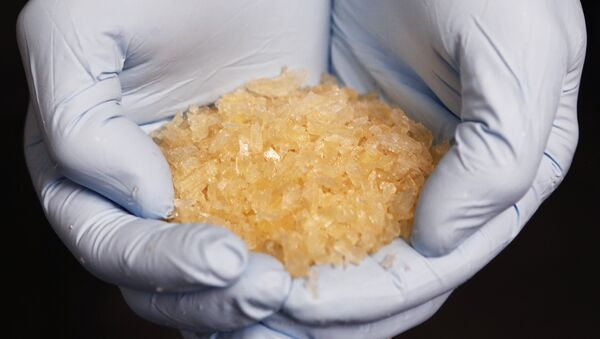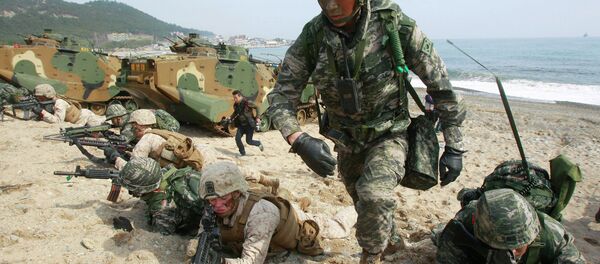"Project managers are now openly providing drugs to construction workers so that they will work faster," a construction source told Radio Free Asia. "[They] are undergoing terrible sufferings in their work."
The methamphetamine is reportedly inhaled through the nose, increasing user energy for up to 12 hours.
Consistent use of the drug causes severe physical and psychological trauma, including delusions, paranoia, and hallucinations. Studies show an increased tendency toward suicide or homicide. With long term use, effects include rapid aging, and irreversible damage to blood vessels, including in the heart and brain.
Human rights organizations accuse the nation of using slave labor and urge the United Nations to step in.
"It's going to be hard to verify that this is happening, but if it is confirmed then we utterly condemned it,” Phil Robertson, Asia director for Human Rights Watch, told the NZ Herald, responding to the allegations of methamphetamine use. "The real issue here is slave labour, and our immediate reaction to this was that if they want faster workers why not actually pay them, instead of resorting to giving them drugs?”
Robertson labeled the construction project as forced labor.
"The North Korean government wants to finish these buildings to somehow prove that they are a developed country. But this kind of forced labour has been unilaterally condemned by the international community,” he said. "It is a throwback to the second world war, when governments regularly resorted to forcing labor of their citizens."
In a 2014 Vice News report, facilities in the nation were shown to be producing drugs for both domestic and international sales, beginning in the 1970s. In the 2000s, North Korean state chemists began to manufacture methamphetamine, originally as a medicine, before it became a popular drug.




